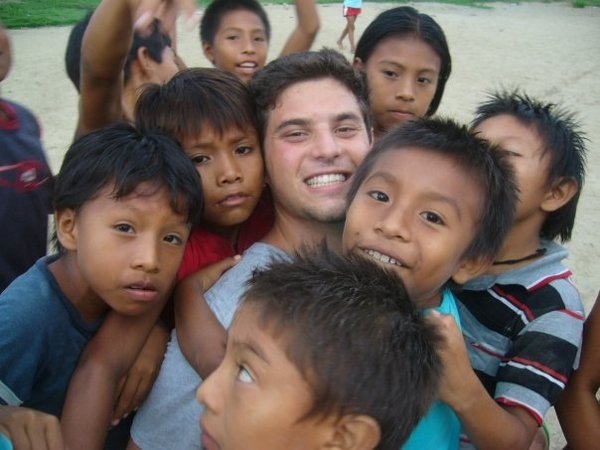SHALHEVET AT 20: Jordan Denitz ’06: Living and working abroad

December 15, 2013
Q:What did you do straight after high school and what do you do now?
A: Straight after high school, I went to UC San Diego. I was there there for four years, and I studied psychology and did my pre-med courses. I really got involved with some research in drug addiction when I was there, but one of mypassions specifically was working internationally with an organization called Global Brigades, doing international sustainable development work, and also establishing medical clinics. My specific project was that I was the president of a club called Global Business Brigades, and we did two trips to Panama. We went to an island off the coast and worked with an indigenous tribe called the Kunas — they specially invited us there. They don’t have any tourism there, they aren’t part of the Panamanian government at all, but they sleep and live in hammocks and that’s their culture. They were running out of funds to support themselves so they wanted our help to make a business out of their hammocks, so that’s what I did as an undergrad. So then I graduated college and then became an in-country adviser for Global Brigades, helping club presidents start clubs and organizing club trips, and I ledthe club trips. I got to live in Honduras for five months and in Panama City for fivemonths. Then I came back and I ended up doing some cancer research in NY. Currently I live in Los Angeles, but in a month I’m moving to an island off the coast of Honduras called Utilla and while I apply to medical school, which I’m doing now, I am going to be getting my instructor’s license for scuba diving.
Q: What is your fondest or funniest memory from your time at Shalhevet?
A: Probably being tied to a chair by the basketball team, because we had a basketball-soccer team rivalry back then and I was a soccer player, so as payback they threw me in a room and taped me head to toe in a chair and just kind of left me in the middle of the hallway. I think my team came and helped me out, I was pretty stuck.
Q:How has Shalhevet influenced you even after graduation?
A: Immensely, I guess, in terms of the education that I got from a small school, being close to my friends, teachers. It helped me a lot after I graduated. It made going to college a lot easier and definitely prepared me academically and morally, I guess, as well.
Q:If you could plan a Town Hall for our students, what topic would you choose and why?
A: I would plan it on introducing students to international work. Even when you’re 15, 16 or 17 you can go to other countries and live and volunteer there, get to know the cultures, and you get to experience being an Orthodox Jew in another country, and learn about indigenous people whose life is more than about justmoney and work.
Q: Who was your favorite teacher from your time at Shalhevet?
A: Ms. Berkey. I think she always truly believed in students and was someone anyone could relate to. She was tough but at the same time, a teacher. Still to this day, I see her and give her hugs, she’s a friend.
Q:When someone says ‘Shalhevet,’ what is the first thing that comes to mind?
A: I think of it being a great time in my life. Sports, friends — yeah.
Q: If you could go back and give your high school self some advice, what would you say?
A: I’d say relax. Take a deep breath. Life is gonna be okay. Get out in the world and go meet different people, cultures, and just kind of enjoy it and don’t be afraid of a little challenge.
Q: Describe the role of Judaism in your life now.
The Jewish education I received here always stuck with me. Even when I was in Honduras I was able to lead services for friends there. The culture is still a huge part of my life and now that I’m in LA it’s a huge part of my family’s life so it’s vital to my family and it’s important to me.
Q: If you could start a club or co-curricular at Shalhevet, what would it be?
A: It would be something like Global Brigades, where high school students can go for a week and build houses or work in a medical clinic with doctors or help a community build latrines and improve the quality of life there.
Q: Sum up your Shalhevet experience in three words or less.
A: A great time.












